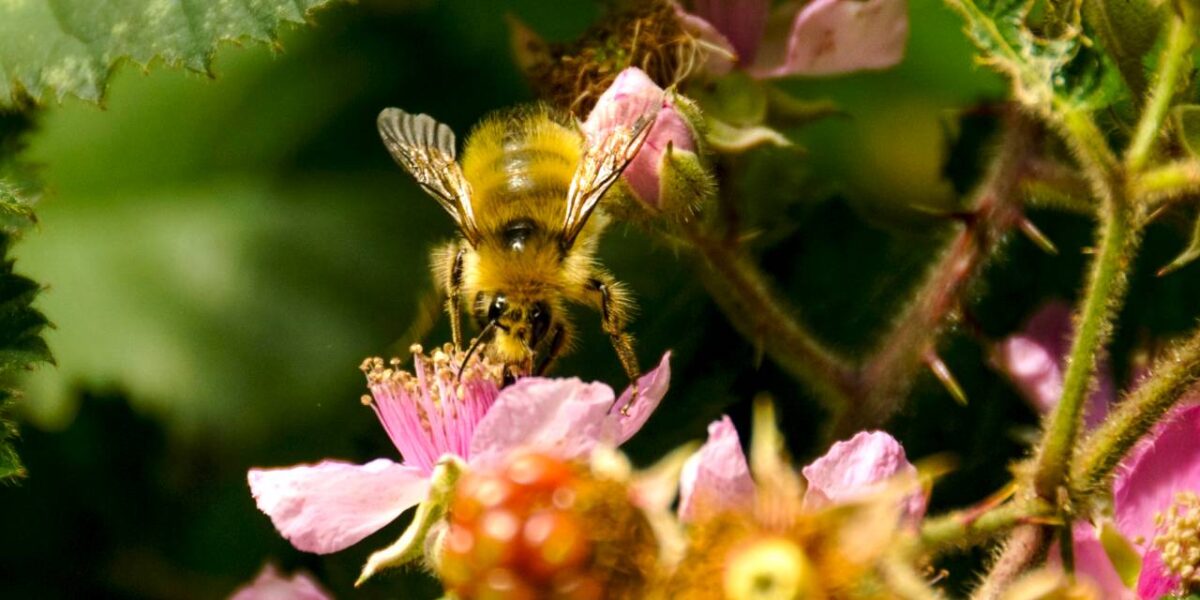Ideas about humanity’s relationship with the planet vary widely. Some believe Earth bestows us with love. After all, it nourishes us with food, air, water and remarkable beauty. On the other hand, maybe it hates us, for — among a depressingly long list — oppressing each other, paving over forests, wetlands and grasslands, creating the Pacific garbage patch, driving thousands of species to extinction, changing the climate and more.
Or, as many of my fellow scientists would argue, it could be indifferent to us. We’re just a cog in a larger wheel, one species among millions, all of which, in their own way, alter the world, for better or worse.
The reality, as recently articulated by Braiding Sweetgrass author Robin Wall Kimmerer in a New York Times interview, is that, ultimately, it’s not about us.
Earth and its living systems have been changing for millions of years and will continue to do so for millions more. In his book Otherlands, Thomas Halliday retraces disappeared ecosystems, moving backwards from the last Ice Age to the first appearance of multicellular life 550 million years ago. He writes that many of us would be surprised at how significantly nature’s components have changed over time.
“Many parts of the natural world we take for granted today are relatively recent arrivals,” Halliday writes. “Grasses, the main component of the largest ecosystems on the planet today, only arose at the very end of the Cretaceous, less than 70 million years ago, as rare parts of the forests of India and South America.”
Kimmerer muses about the geological epochs that have shaped and reshaped the planet, and the place of humans within them. “Some of these cycles of creation and destruction that promote renewal and change might be bad for us, but we’re one of 200 million species. They might be bad for other species too, but over evolutionary time, we see that major changes that are destructive are also opportunities for adaptation and renewal and deriving new evolutionary solutions to tough problems.”
She argues, “It is a mistake to romanticize the living world, but it is also a mistake to think of the living world as adversarial.”
In many ways, how we see nature is reflected in the stories we tell about ourselves.
As animals, we — however coiffed and dressed up — are constituents of the natural network. Whether we recognize it or not, like most species, we live in symbiotic relationships with the world around us. We are predators to many, but we might also nourish worms and fungi, depending on how we choose to return to the earth at the end of our lives.
As a species with abilities to conceptualize problems and solutions, and to plan for the future (a capacity we share with other species), we have choices about how we shape our influences on other living and nonliving things. One factor that has driven the current ecological and climate crises is our widely held belief that existence revolves around us, that we’re at the centre rather than along the curve of the circle of life.
The late writer Barry Lopez speculated that this might be a part of our genetic ancestry. “Our trouble seems to be that, you know, our primate heritage, which is apparent in watching the behavior of chimpanzees and bonobos, is that we’re keenly interested in ourselves and opposed to others. That’s deep in our tissues. And with the kind of world we’ve built, that’s not going to work.”
Halliday echoes this sentiment. In his book, he concludes, “For our long-term well-being as a species and as individuals, we must enter into a more mutualistic relationship with our global environments. Only then can we preserve not just their infinite variety, but also our place within them.”
What will it take for us to turn outwards, to broaden the circle to include other living things, creating a space for their survival, recovery and flourishing?
Kimmerer believes it’s possible. “It’s a false dichotomy to say we could have human well-being or ecological flourishing,” she writes. “There are too many examples worldwide where we have both, and that narrative of one or the other is deeply destructive and cuts us off from imagining a different future for ourselves.”
David Suzuki is a scientist, broadcaster, author and co-founder of the David Suzuki Foundation. Written with contributions from David Suzuki Foundation Boreal Project Manager Rachel Plotkin.
Learn more at www.davidsuzuki.org.




